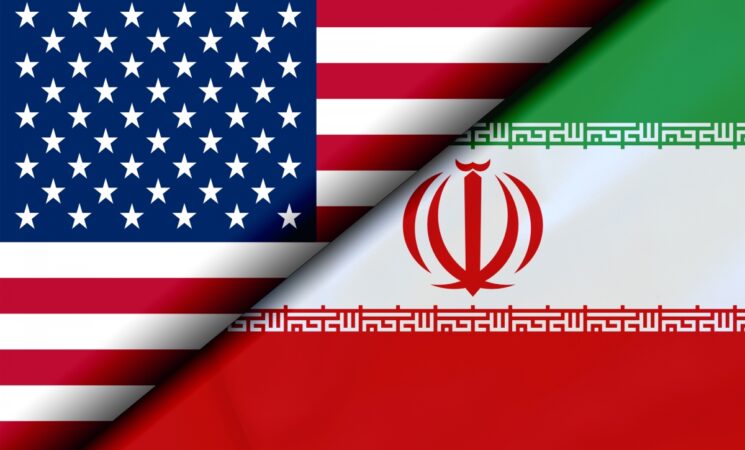16 October 2021, NIICE Commentary 7460
Tridivesh Singh Maini
In an interview aired by Iran state TV, on October 18, 2021, Iranian President Ebrahim Raisi said that while his country was ready to return to the Iran Nuclear Deal/ Joint Comprehensive Plan of Action (JCPOA) negotiations, which the US had withdrawn from unilaterally from in 2018, it was important for other signatories to send out a clear message that they will remove existing sanctions imposed on Iran. ‘For the other side, a readiness to lift sanctions can be a sign for its seriousness,’ said Raisi.
It would be pertinent to point out, that EU and Russia have been urging Iran to get back to the Vienna negotiations, which have been on hold since June 2021. The EU Foreign Policy Chief, Josep Borrell recently made the point that Iran needed to show greater urgency in getting back to negotiations. EU has, however denied, that there would be any talks in Brussels with regard to restarting the negotiations over the Iran Nuclear Deal.
Iran has repeatedly raised the demand for removal of economic sanctions, while Washington DC has been saying it would do so only when Iran returned to full compliance of the 2015 deal, between Iran and P4+1 group (Britain, France, Russia, and China plus German). This has been the main sticking point between the Biden Administration; which did remove certain sanctions against Iranian companies and officials in June 2021 and Iran.
In recent weeks, Iran has repeatedly said that it would get back to the negotiations, but it would not take diktats from any country, or compromise on its own self interest. Iranian Foreign Minister Hossein Abdollahian’s tone however has indicated that Iran is keen to return to negotiations and to explore the path of diplomacy.
Biden Administration’s Aggressive stance vis-à-vis Iran
As Iran has raised its level of uranium enrichment to 120 kilograms (265 pounds) of 20 percent uranium enrichment in violation of the 2015 agreement, the Biden Administration’s tone vis-à-vis Iran has been aggressive and not very different from that of the Trump Administration. US Secretary of State Anthony Blinken has on more than one occasion said that Washington would not refrain from using options other than diplomacy, if Iran did not return to the negotiating table soon. After his meeting with Foreign Ministers of UAE and Israel, Blinken repeated the same point, saying ‘We are prepared to turn to other options if Iran doesn't change course’.
Earlier, after an Israeli linked oil tanker was attacked off the coast of Oman, in July 2021 killing two crew members, Blinken had not ruled out retaliation.
Iranian Foreign Minister, Hossein Abdollahian while speaking at a news conference during his visit to Moscow, earlier this month said, “Our understanding is that although Mr. Biden uses different rhetoric from Trump, he is guided by the Trump dossier”.
The aggressive stance of the Biden Administration vis-à-vis Iran, in recent months, is surprising, because during his election campaign, Biden had been scathing in his criticism of the Trump Administration’s approach vis-à-vis Iran. Second, Iran has only moved closer to China and Russia, as a result of Trump Administration’s ‘maximum pressure’ policy vis-à-vis Iran. Although during the initial months in office, Biden Administration did show urgency and flexibility, through the removal of the economic sanctions. In recent months, there has been a change as it has imposed further economic sanctions on Iran, following the footsteps of the Trump Administration.
Washington also needs to bear in mind that Iran is an important stakeholder in Afghanistan, and if the Washington-Tehran relationship improves, there is an opportunity for finding common ground. Like the US, Tehran too has its differences with the Taliban interim government especially with regard to its non-inclusive nature.
If the US and Iran adopt a maximalist position, other signatories to the deal, including Russia, Germany, UK, France cannot do much. The Biden Administration has drawn a lot of criticism for its handling of Afghanistan. It is important that it does not make the same mistakes as the Trump administration on the Iran issue, and allow any other country to influence its Iran policy. While the Biden administration has been accused of being soft on Iran by republicans, a numbers of democrats have expressed disappointment with the Biden administration’s policy vis-à-vis Iran which according to them is similar to that of the Trump Administration. Similarly, Iran needs to be more realistic in its demands, and given the current state of its economy and the geopolitical situation after the takeover of Afghanistan by the Taliban as it cannot afford to be isolationist.
In conclusion, time is running out not just for Iran, but Washington as well. If the US does not show greater urgency and the ability to think out of the box with regard to the Iran nuclear deal, the Biden Administration could be steering at another foreign policy failure.
Tridivesh Singh Maini is Visiting Faculty at Jindal School of International Affairs, India.

